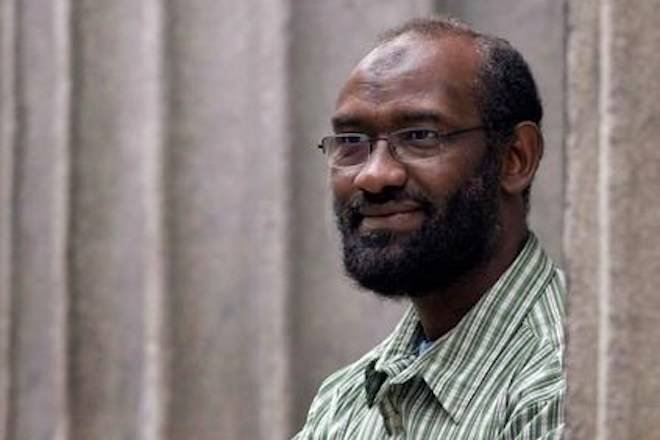Peter Harder, the Liberal government’s representative in the Senate, has rebuffed a call to testify next month in a Montreal man’s lawsuit over his lengthy detention in Sudan.
Harder, a former deputy minister of foreign affairs, is invoking his legal privilege as a senator to avoid appearing in court during a parliamentary session after being subpoenaed to answer questions about Abousfian Abdelrazik’s overseas ordeal.
However, several other parliamentarians who had dealings with the Abdelrazik file, including Sen. Mobina Jaffer, Conservative MP Deepak Obhrai, Liberal MP Wayne Easter and Quebec MP Maxime Bernier — who quit the Conservative party Thursday — have signalled a willingness to testify, said Paul Champ, Abdelrazik’s lawyer.
Lawrence Cannon, a former Conservative foreign affairs minister, is also expected to be a witness, Champ says.
RELATED: Two Haida men detained for crossing U.S.-Canada border
The Sudanese-born Abdelrazik, 56, arrived in Canada from Africa as a refugee in 1990. He became a Canadian citizen five years later.
He was arrested during a 2003 visit to Sudan to see family. While in custody, Abdelrazik was interrogated by the Canadian Security Intelligence Service about suspected extremist links. He claims he was tortured by Sudanese intelligence officials during two periods of detention, but Canada says it knew nothing of the alleged abuse.
Abdelrazik denies any involvement in terrorism and is suing the Canadian government in Federal Court for an apology and compensation.
The federal government has chosen to settle lawsuits brought by other Canadians over the federal role in their imprisonment abroad, notably Maher Arar, Omar Khadr, Abdullah Almalki, Ahmed Elmaati and Muayyed Nureddin.
It appeared earlier this year that the long-running Abdelrazik matter might also be settled out of court. But the government abruptly cancelled mediation sessions and a trial is scheduled to begin Sept. 17.
As many as 35 witnesses could appear during the eight-week proceedings in Ottawa.
Champ contends the testimony from parliamentarians will show how elected officials were kept in the dark.
“Mr Abdelrazik’s trial will expose the enormous gaps in the oversight of CSIS and the extent to which the Service believes it can destroy the lives of citizens with impunity.”
It is “particularly disappointing” that Harder is unwilling to tell the court what he knew about Abdelrazik’s detention, Champ said. ”I hope he changes his mind and follows the moral leadership of his fellow parliamentarians and shows up in court.”
In a June 28 letter to Champ, a parliamentary lawyer acting for Harder notes the right of exemption for MPs and senators from being subpoenaed to attend court as a witness during a session of Parliament, as well as for a period before and after the session.
“The Parliament of Canada is currently in session and will remain so until the next prorogation or dissolution of Parliament. Senator Harder can therefore avail himself of the above-noted parliamentary privilege and intends to do so in this case.”
Days after Abdelrazik’s second release from prison, in July 2006, his name turned up on a United Nations Security Council blacklist that prevented him from flying back to Canada.
He was granted haven in the Canadian consulate in Khartoum, but Canada refused to issue him a travel document to fly home.
RELATED: Maxime Bernier tears strip off Conservatives, Scheer as he quits federal party
Obhrai, a former parliamentary secretary, spoke with Abdelrazik for an hour in March 2008 when he accompanied Bernier, foreign affairs minister at the time, to Sudan.
A June 27 letter to Champ from a House of Commons lawyer, writing on Obhrai’s behalf, also mentions the time-honoured privilege of parliamentarians concerning court appearances.
But it says Obhrai is willing to attend court on a day when the Commons is not sitting, or possibly testify by video conference. “It may be able to arrange to testify in a manner so as not to impede his abilities to carry out his functions as a member of Parliament and so as not to unnecessarily delay the court process.”
Abdelrazik returned to Montreal from Sudan in June 2009 amid a blaze of publicity about his case.
That same month, a Federal Court judge concluded CSIS was “complicit” in his 2003 detention.
The judge also found that, by mid-2004, Canadian authorities had determined they would not take any active steps to assist Abdelrazik’s return to Canada, and would consider refusing him a passport to prevent his homecoming.
The Canadian Press



